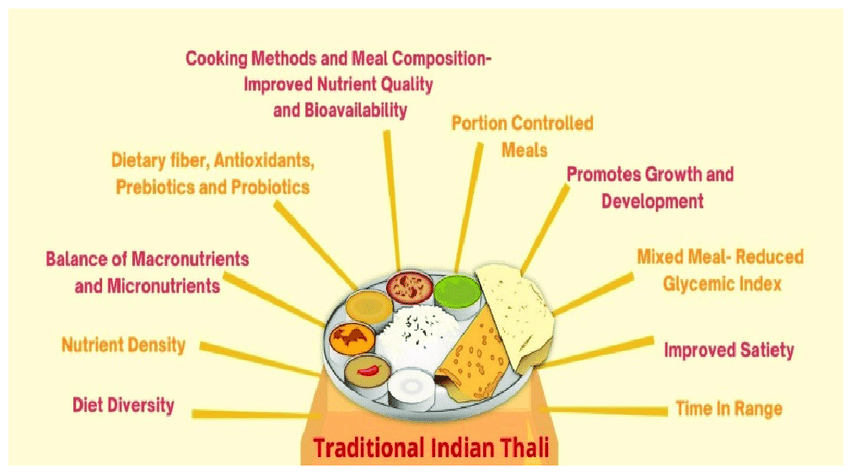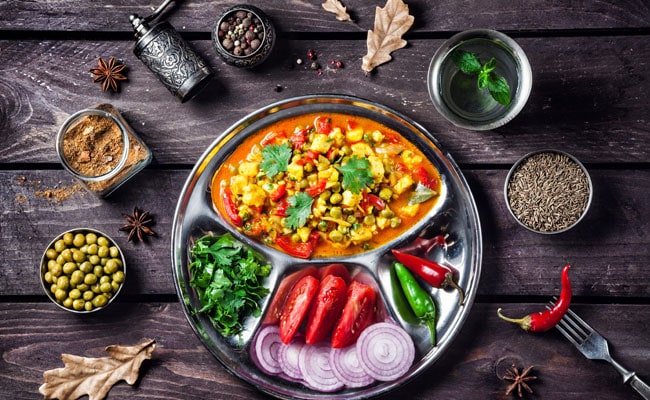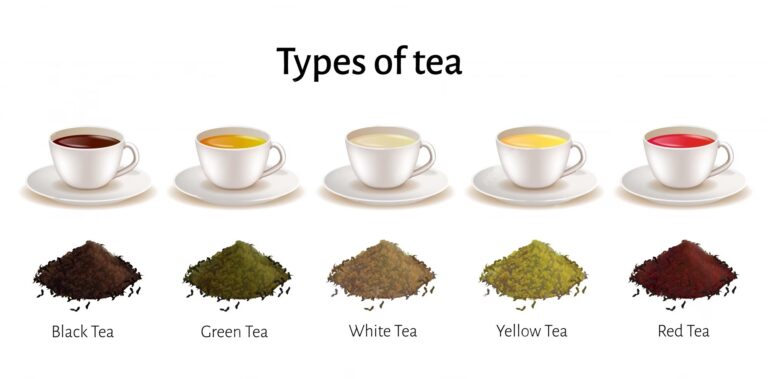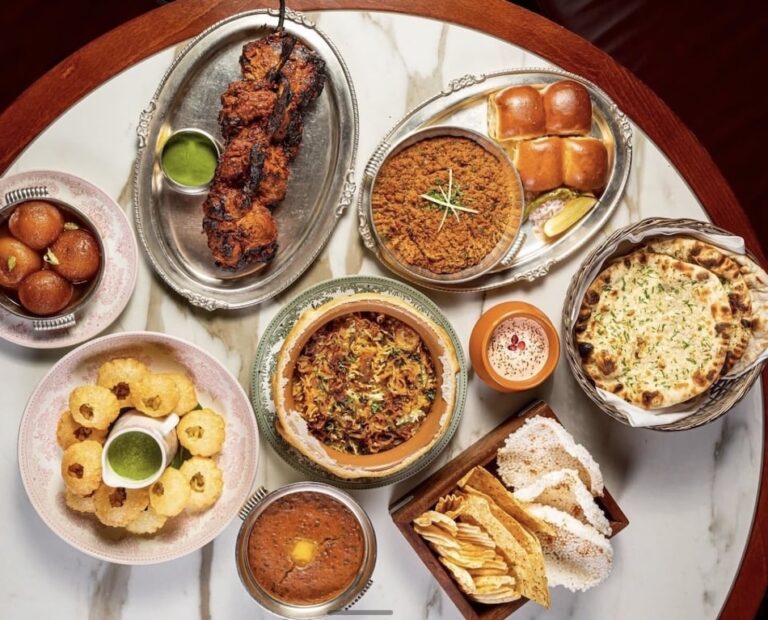The Benefits of a Traditional Healthy Indian Diet
The benefits of the Traditional Healthy Indian Diet are countless. The Indian subcontinent is home to one of the oldest and most diverse culinary traditions in the world, with a rich and vibrant food culture that spans thousands of years. From spicy curries to fragrant rice dishes, traditional Indian cuisine is known for its bold flavors, vibrant colors, and exquisite aromas. But beyond its delicious taste, a traditional Indian diet is also packed with a wealth of health benefits that have been recognized by experts around the world. From reducing inflammation to improving heart health and promoting weight loss, the health benefits of a traditional Indian diet are truly remarkable. So, if you’re looking to boost your health and vitality, why not explore the wonderful world of Indian cuisine? In this article, we’ll take a closer look at the many health benefits of a traditional Indian diet, and explore some of the best foods to include in your daily meals.
The Principles of a Traditional Indian Diet
The traditional Indian diet is a plant-based diet that is rich in whole grains, fruits, vegetables, legumes, nuts, and seeds. It is low in fat, sugar, and processed foods. The Indian diet also emphasizes the use of spices, which are not only used to add flavor but also to enhance the health benefits of the food. One of the key principles of a traditional Indian diet is the Ayurvedic principle of balancing the three doshas -Vata, Pitta, and Kapha. The three doshas are considered to be the basic principles of the human body and are used to determine an individual’s constitution and imbalances. A traditional Indian diet aims to balance the doshas by including foods that are appropriate for each constitution.

Health Benefits of a Traditional Indian Diet
A traditional Indian diet is associated with numerous health benefits. A study published in the Journal of Nutrition and Metabolism found that a traditional Indian diet is rich in antioxidants, which can help to reduce inflammation in the body. This can help to prevent chronic diseases such as heart disease, diabetes, and cancer. The high fiber content of a traditional Indian diet can also help to reduce the risk of heart disease. A study published in the American Journal of Clinical Nutrition found that a high fiber intake was associated with a lower risk of heart disease.
The use of spices in traditional Indian cuisine also offers numerous health benefits. Turmeric, for example, has anti-inflammatory properties and can help to reduce the risk of chronic diseases. Cumin is another spice that is commonly used in Indian cuisine and has been shown to have anti-cancer properties.
Traditional Indian diet Spices and Their Health Benefits
Spices are an integral part of traditional Indian cuisine and are used not only for their flavor but also for their health benefits. Here are some of the most commonly used spices in Indian cuisine and their health benefits.
1. Turmeric: Turmeric is a bright yellow spice that is commonly used in Indian cuisine. It contains a compound called curcumin, which has powerful anti-inflammatory properties and can help to reduce the risk of chronic diseases.
2. Cumin: Cumin is a spice that is commonly used in Indian cuisine. It has been shown to have anti-cancer properties and can also help to improve digestion.3. Coriander: Coriander is a spice that is commonly used in Indian cuisine. It is rich in antioxidants and has been shown to have anti-inflammatory properties.
4. Cardamom: Cardamom is a spice that is commonly used in Indian cuisine. It has been shown to have anti-inflammatory properties and can also help to lower blood pressure.
Traditional Indian Dishes and Their Health Benefits
Traditional Indian cuisine offers numerous dishes that are not only delicious but also offer a range of health benefits. Here are some of the most popular traditional Indian dishes and their health benefits.
1. Chana Masala: Chana masala is a dish made with chickpeas and a blend of spices. Chickpeas are a rich source of protein and fiber, which can help to promote satiety and aid in weight loss.
2. Saag Paneer: Saag paneer is a dish made with spinach and paneer (a type of Indian cheese). Spinach is rich in iron and other nutrients and can help to improve blood circulation.
3. Dal Makhani: Dal makhani is a dish made with black lentils and kidney beans. Lentils and beans are both rich in protein and fiber, which can help to promote satiety and aid in weight loss
Comparison of Traditional Indian Diet and Western Diet
The traditional Indian diet differs significantly from a typical Western diet, which is high in processed foods, sugar, and saturated fat. The traditional Indian diet is based on whole, plant-based foods and is low in fat and sugar. A comparison of the two diets shows that the traditional Indian diet is associated with numerous health benefits, including a reduced risk of chronic diseases such as heart disease and diabetes.
Tips for Incorporating a Traditional Indian Diet into Your Lifestyle
If you’re interested in incorporating a traditional Indian diet into your lifestyle, here are some tips to get you started:
1. Start by incorporating more whole, plant-based foods into your diet, such as fruits, vegetables, legumes, and whole grains.
2. Experiment with traditional Indian spices such as turmeric, cumin, and coriander to add flavor and health benefits to your meals.
3. Try traditional Indian dishes such as chana masala, saag paneer, and dal makhani to experience the health benefits of this cuisine.
Traditional Indian Diet Recipes
Here are some traditional Indian diet recipes to get you started:
1. Chana Masala: https://bestrestaurantfood.com/2020/04/10/chana-masala-recipe-high-protein-indian-dish/
2. Saag Paneer: https://bestrestaurantfood.com/2023/07/19/palak-paneer-recipe-indian-spinach-paneer/
3. Dal Makhani: https://www.veganricha.com/dal-makhani-recipe/
Traditional Indian Diet and Weight Loss
The Traditional Healthy Indian Diet is low in fat and sugar and is based on whole, plant-based foods. This makes it an excellent choice for weight loss. A study published in the Journal of the Academy of Nutrition and Dietetics found that a vegetarian Indian diet was associated with a lower body mass index (BMI) and a reduced risk of obesity.
Conclusion
The Traditional Healthy Indian Diet is a plant-based diet that is rich in whole grains, fruits, vegetables, legumes, nuts, and seeds. It is low in fat, sugar, and processed foods and emphasizes the use of spices to enhance the flavor and health benefits of the food. The health benefits of a traditional Indian diet are numerous, and it has been associated with a reduced risk of chronic diseases such as heart disease, diabetes, and cancer. By incorporating more whole, plant-based foods into your diet and experimenting with traditional Indian spices and dishes, you can experience the many health benefits of this ancient cuisine.






